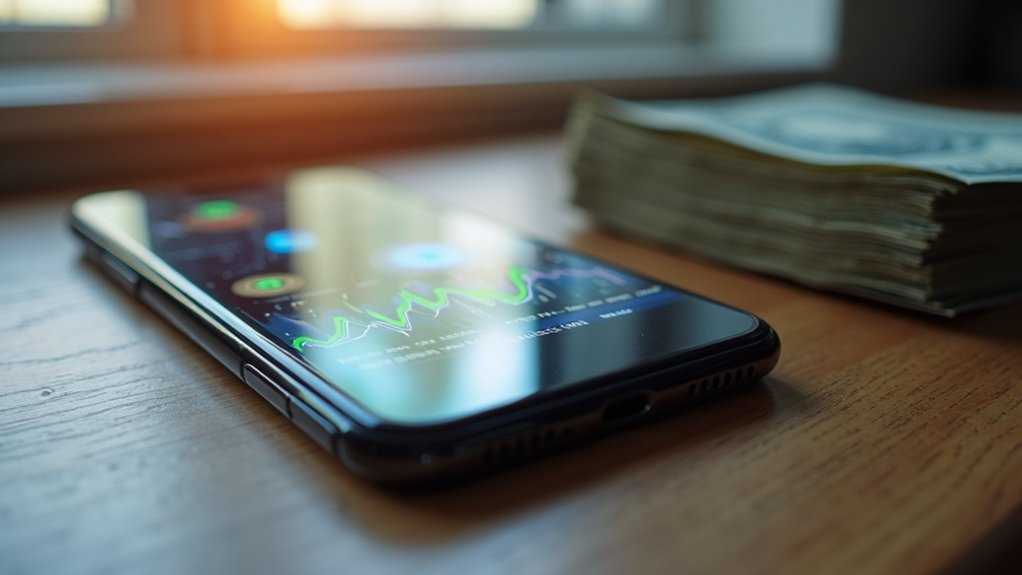Buying Bitcoin requires choosing an exchange first—centralized (CEX) or decentralized (DEX). CEXs need personal info and government ID; DEXs just need a wallet address. Fund accounts via bank transfers or cards at CEXs, while DEXs require existing crypto. Place market orders for immediate execution or limit orders for target prices. After purchase, transfer crypto to private wallets for security. Watch for trading fees and blockchain charges. The crypto journey gets deeper from here.
While cryptocurrency enthusiasts tout Bitcoin as the future of finance, diving into the digital currency marketplace isn’t as simple as clicking a “buy” button. The process involves several steps that can seem overwhelming to newcomers. Bitcoin trading isn’t for the faint of heart. Or the impatient.
First, traders need to register on a cryptocurrency exchange. Centralized exchanges (CEXs) demand your personal information—legal name, birthdate, address, even your Social Security number. Privacy advocates cringe. Decentralized exchanges (DEXs) require less, typically just a wallet address. Either way, you must be 18 with a government ID. The verification process follows Know Your Customer (KYC) regulations. Bureaucracy at its finest.
Privacy comes at a premium in crypto. CEXs want your life story; DEXs just need your wallet. Welcome to regulatory reality.
Money comes next. CEXs want you to deposit traditional currency first. Link a bank account, credit card, or services like PayPal. DEXs work differently—no fiat deposits. Instead, users transfer cryptocurrency directly from personal wallets. Some DEXs offer Fiat-on-Ramp services for those still clutching their dollars and euros.
Trading involves various order types. Market orders execute immediately at current prices. Fast but potentially costly. Limit orders specify a target price—the trade only happens when the market reaches that level. Stop orders trigger at predetermined prices, useful for managing risk or locking in profits. Reputable platforms like Binance and Coinbase offer user-friendly interfaces for beginners. Each exchange has its own interface. Some are intuitive. Others resemble airplane cockpits. The order book system matches buyers and sellers automatically to ensure fair market prices.
After buying, centralized exchanges hold your Bitcoin in their account. Not ideal. Security experts recommend transferring to private wallets immediately. Always prioritize using hardware wallets for the most secure offline storage of your cryptocurrency assets. DEX users receive crypto directly in their wallets. Transaction confirmations depend on blockchain network speeds. Sometimes quick, sometimes glacial.
Fees lurk everywhere. Trading fees, service fees, blockchain transaction fees. Costs vary by exchange, with many using tiered structures based on trading volume. Blockchain fees fluctuate with network congestion—during Bitcoin’s 2017 peak, some users paid hundreds in fees alone. Surprise!
The Bitcoin world isn’t simple. But neither is traditional finance. At least with crypto, you don’t need to wait for bankers’ hours.
Frequently Asked Questions
Is Bitcoin Legal in My Country?
Bitcoin’s legality varies dramatically by country.
It’s neither universally banned nor universally accepted as legal tender. Most nations classify it as an asset, commodity, or payment method with corresponding regulations.
Without knowing which country is “your” country, it’s impossible to give a specific answer.
Legal status can include everything from full acceptance to outright bans. Even within countries, rules change constantly.
Check your local financial regulatory authority. They’re the ones who’ll fine you, after all.
How Do I Report Bitcoin Transactions for Tax Purposes?
Taxpayers must report all Bitcoin transactions on their tax returns. Period. The IRS doesn’t mess around here.
Form 8949 lists individual transactions, while Schedule D summarizes gains and losses.
Mining or staking rewards? That’s Schedule 1 or C income.
Starting 2025, brokers will issue Form 1099-DA showing proceeds. By 2026, they’ll report cost basis too.
Keep detailed records of everything—dates, amounts, values. The IRS is watching. They always are.
What Happens if I Lose My Wallet Password?
Losing a wallet password can be catastrophic. For non-custodial wallets, it likely means permanent loss of funds.
No central authority. No reset button. Just gone.
Recovery options exist but are limited. Password cracking tools might work if you remember parts of it.
Some pros offer services—beware of scams though.
With a seed phrase, there’s hope. Without it? Those bitcoins join the estimated 3.7 million permanently lost coins.
A costly lesson in digital security.
Can My Bitcoin Account Be Hacked?
Yes, Bitcoin accounts can absolutely be hacked. Not a matter of if, but how.
Crypto thefts doubled in early 2024 alone, with $1.38 billion stolen. Hackers target private keys, use malware, and engineer social attacks.
Hot wallets? Vulnerable as hell. Even cold wallets aren’t foolproof. The DPRK’s made a hobby of it, swiping multiple $50+ million hauls this year.
And reimbursement? Good luck with that. Most exchanges won’t cough up your lost coins.
How Much Electricity Does Bitcoin Mining Consume?
Bitcoin mining devours electricity at a staggering rate. Current consumption hovers around 170 TWh annually—roughly 0.7% of global electricity use. That’s comparable to Finland’s entire power needs.
Each transaction? A whopping 1,335 kWh, equal to 45 days of average U.S. household power. The network runs on about 10 gigawatts continuously.
And it’s getting worse as mining difficulty increases. Over half comes from renewables now, but still. The environmental footprint? Massive.









